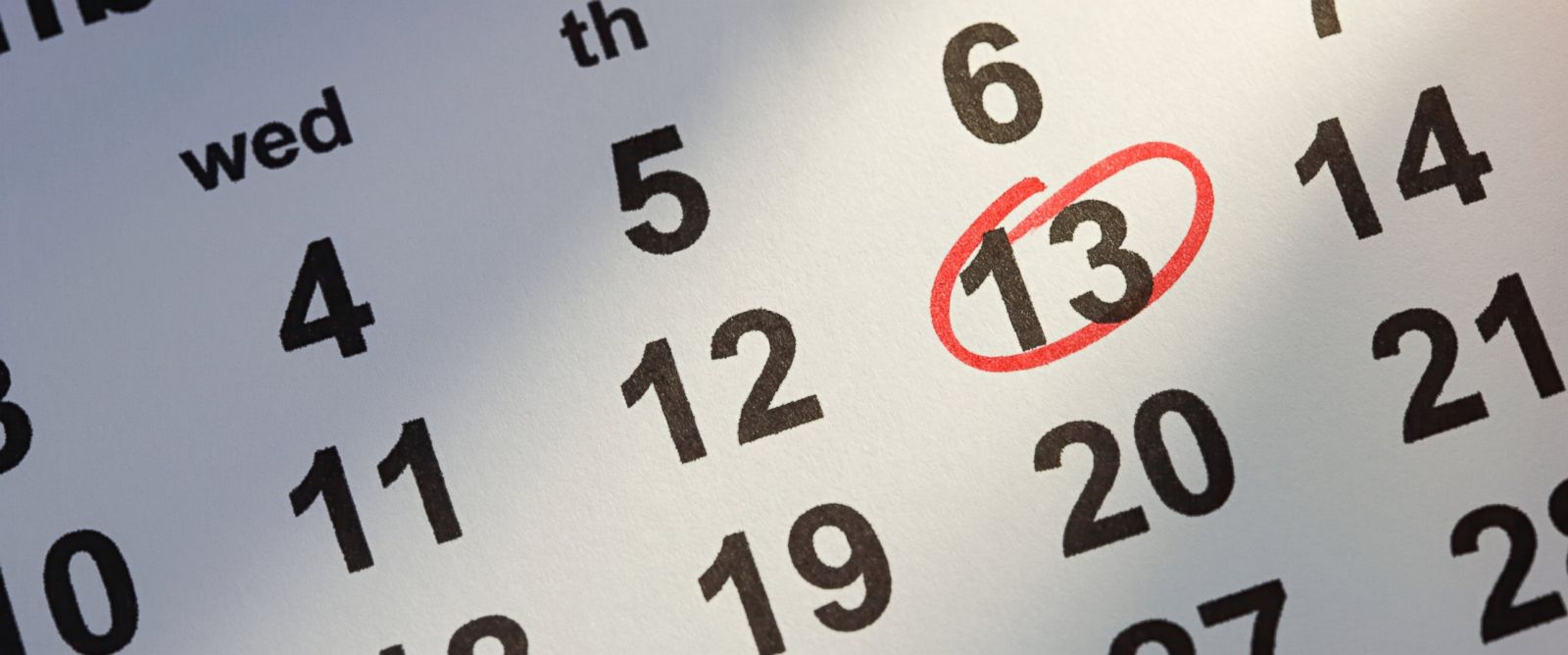From black cats to broken mirrors to spilled salt – many consider Friday the 13th to be a very unlucky day. Would you believe there’s a bit of science to all of this bad luck?
Do you suffer from paraskavedekatriaphobia? Perhaps, you have friggatriskaidekaphobia? If you know what I’m talking about then you’ve probably locked yourself away in your home today – Friday the 13th. Scientists have given names like paraskavedekatriaphobia as well as friggatriskaidekaphobia to the fear of Friday the 13th. Similarly, Triskaidekaphobia is fear of the number 13 (President Franklin D. Roosevelt, Napoleon, and President Herbert Hoover were all Triskaidekaphobic). According to the Stress Management Center and Phobia Institute in Asheville, N.C., as many as 21 million people in the United States are fearful of Friday the 13th.
Friday the 13th represents one of the most popular myths in science. The history behind the idea that this day is particularly unlucky is shrouded in mystery. It could be linked to the story of the Last Supper in the Bible (Judas, the 13th guest betrayed Jesus). In the Middle Ages, people connected both Friday and the number 13 to bad fortune. Whatever the source, the belief that people should be extra careful on Friday the 13th is alive and well in the present day.
Here are a couple of interesting Friday the 13th facts:
- The ill-fated Apollo 13 launched at 13:13 CST on Apr. 11, 1970. The sum of the date’s digits (4-11-70) is 13 (as in 4+1+1+7+0 = 13). And the explosion that crippled the spacecraft occurred on April 13 (not a Friday). The crew did make it back to Earth safely, however.
- Alfred Hitchcock was born on Aug. 13, 1899. That’s a Sunday. However, the master of horror would have turned 100 on August 13, 1999. That day is a Friday.
- Resident of Buffalo, New York experienced a record snowfall on Friday, October 13, 2006. During the Friday the 13th Blizzard, residents experienced 22 inches of snow in the middle of October. Over 300,000 people lost power for up to a week as a result of the storm.
- On April 13, 2029, asteroid 2004 MN4 will fly past Earth only 18,600 miles (30,000 km) above the ground. For comparison, geosynchronous satellites orbit at 22,300 miles (36,000 km). “At closest approach, the asteroid will shine like a 3rd magnitude star, visible to the unaided eye from Africa, Europe and Asia–even through city lights,” says Jon Giorgini of JPL. This is rare. “Close approaches by objects as large as 2004 MN4 are currently thought to occur at 1000-year intervals, on average.”
Many cultures have looked for meaning, signs, and predictions in numbers. Numerology, the belief that numbers are connected to life and physical things, can be traced back to many civilizations. Is there a reason to be so apprehensive of a day that’s technically just like any other? Many scientists argue that there is no evidence that numerology, like astrology, can predict the future. Instead, they believe that people have drawn connections between certain numbers and events without really examining the supporting evidence. For example, lots of unfortunate events happen on Tuesday the 13th as well. We just pay more attention when the 13th happens to fall on a Friday. Trust me. Better yet, trust science. Today is no more unlucky than any other day of the week.
















